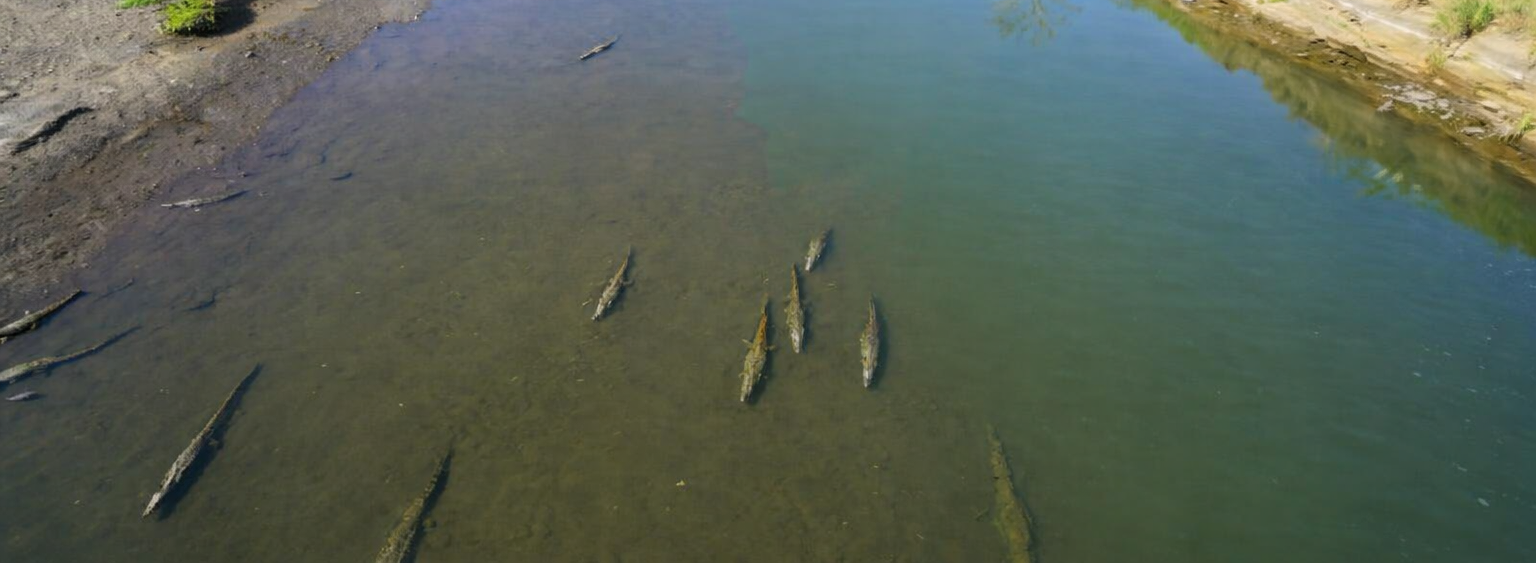New tourism and sport fishing alliance in Central America boosts employment generation in vulnerable communities
- Representatives of three Central American countries sign a Letter of Understanding to work towards generating employment to improve safety in coastal communities in Central America through fishing tourism.
- The new regional platform seeks to strengthen the blue economy, promote marine conservation and support vulnerable coastal communities.
SAN JOSE, May 20, 2025. Fisheries management cannot be approached in isolation, especially with regard to highly migratory species: the decisions and policies of one country have a direct impact on the populations and economies of its neighboring countries. For this reason, with the objective of strengthening tourism fishing as an engine of sustainable development, fishing tourism organizations from Guatemala, Honduras and Costa Rica signed the Letter of Understanding that gives rise to the Central American Sportfishing Alliance (CASA).

This alliance seeks to consolidate tourist and sport fishing as a key tool for the economic development of the region and the management of species of interest for fishing such as billfish, tarpon, and roosters, among others. It is expected that signatory organizations from other countries will join later as adherent members to expand the impact of the alliance.
Officially signed on May 12, 2025, the charter establishes that the alliance will focus on three fundamental pillars: fostering the economic and social development of coastal communities through the consolidation of sport fishing; promoting policy and regulatory frameworks that encourage responsible marine tourism; and strengthening a multi-sector network comprised of the private sector, academia and government entities.
"The official creation of CASA marks a milestone for sport fishing and tourism in Central America," concluded Marina Marrari, Executive Director of FECOP in Costa Rica. "For the first time, the private sector is coming together regionally to promote sustainability, generate useful knowledge for decision makers and strengthen the coastal communities that depend on this activity."
In addition, the alliance will seek to foster scientific research and monitoring, and promote education and awareness of sport fishing through training programs, awareness campaigns and the adoption of best practices in the fishing and tourism sectors.
To get to this point, the alliance has had the key support of Billfish Conservation Project, Provimagua of Guatemala, the Caribbean Fishing Club of Honduras and the Costa Rican Federation of Tourist Fishing (FECOP) of Costa Rica.
The signing took place at the Pacific Fins Hotel, Iztapa, Guatemala, with the presence of representatives of the sector and special guests of the Pacifico Sostenible project, representatives of OSPESCA and allies of the tourist fishing sector within the framework of the 84th international tournament of the International Light Tackle Tournament Association (ILTTA).
Strengthening an industry that generates employment
Sport fishing generates significant economic benefits directly and indirectly in all the countries of the alliance. In Costa Rica, this activity generates $520 million annually, surpassing key exports such as coffee ($276 million) and cruises ($29.9 million). The activity directly employs 13,000 people and 33,000 in total. In Honduras, sport fishing generates significant economic spillover in coastal areas; the three main tournaments inject more than $500,000 annually into the tourism sector and related activities. And in Guatemala, the activity involves more than 50 boats, more than 500 related jobs, and 10 major operations focused on sailfish fishing-although the economic potential of the sector is considered to be enormous if developed further.
"A live fish is worth more than a dead one: that's what we want to demonstrate. Sportfishing tourism can open up real opportunities for coastal communities in El Salvador," said Mariano Quirós, a sports tourism entrepreneur in the Gulf of Fonseca invited to the signing of the El Salvador activity. "This alliance gives us a platform to grow, protect our species and attract visitors who value conservation."
In the countries of the region, it is common for the sector to invest in activities that generate positive social and environmental impact, such as environmental education and awareness, strengthening community tourism, donations to civil society, and citizen science programs.
However, as a blue economy activity, tourism fisheries face notable challenges stemming from a lack of representation in key decision-making bodies. This exclusion of an essential economic sector, coupled with inadequate regulatory frameworks, hinders democratic governance in vulnerable coastal communities; it undermines residents' trust in their institutions and further exacerbates existing disparities.
Towards regulation, coordination, and shared prosperity
Among the first tasks of CASA, already underway, it is expected to implement spaces such as meetings and workshops to understand the gaps and priorities for each country and how this can be directed to regional lines of work. In this process, the Participatory Tourism Fishing project funded by the U.S. Embassy in Costa Rica has expressed its interest in accompanying these initiatives aimed at strengthening vulnerable communities and their livelihoods.
"Billfish are migratory fish, and protecting them requires a joint effort," said Roberto Calderón, president of the Caribbean Fishing Club of Honduras. "This alliance is key to aligning Central American countries with common objectives, clear laws and effective conservation programs. Only then will our efforts have real impact.
"This alliance represents a real opportunity to achieve sustainable management of marine resources in the region," said Carlos Francisco Marín, an independent consultant and former fisheries director of Guatemala's Ministry of Agriculture. "It is a key step in bringing together research, community development and economic strengthening for those who make a living from sport and artisanal fishing."
Source: https://fishcostarica.org/

Alamo takes you closer to your next big catch.
Discover the thrill of Sportfishing on the Pacific Coast with Alamo
The Pacific coast of Costa Rica is recognized worldwide as a world class destination for sport fishing lovers and Alamo Rent a Car has offices strategically located in the main marinas of the country. Choose from our wide fleet of vehicles from compact SUVs to rugged 4x4, ideal for touring Costa Rica's coastal routes in comfort and safety. Book in advance and enjoy a service with international standards, personalized attention and 24/7 support during your trip.













